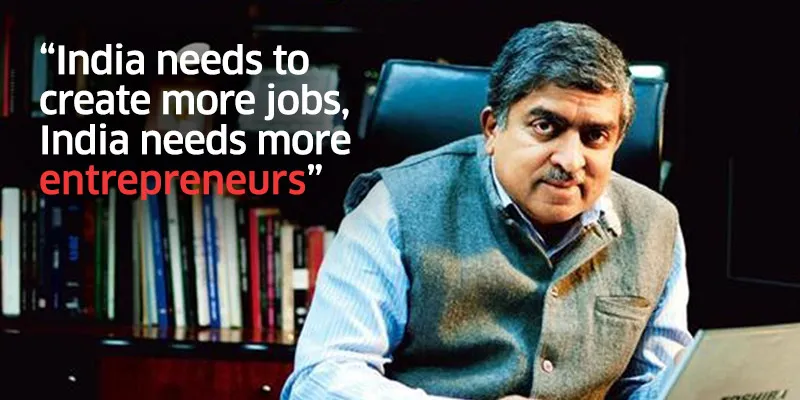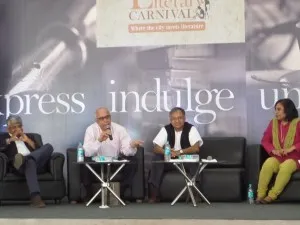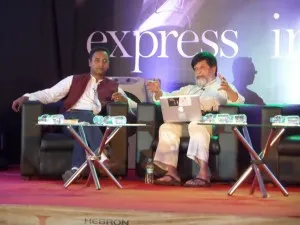India needs more entrepreneurs: Nandan Nilekani at the Times Literary Carnival
The first Times Literary Carnival, held recently in Bangalore, offered insights not just into the literary contribution and styles of writers, but also on the larger creative ecosystem and socio-political backdrop of India. The festival ended with a rousing call to get more entrepreneurs and startups off the ground in India.

“India has three factors going for it: the world’s largest youth concentration, the hyper-aspirations of its youth, and their impatience with realising their goals,” said Nandan Nilekani, chairman of the Unique Identification Authority of India (UIDAI) and co-founder of IT giant Infosys.
Nilekani is also the author of the books Imagining India: The Idea of a Renewed Nation and the recently released New Voices in the New Age.
“The aspirations of India’s youth are non-linear,” observed Nilekani. According to him, they want to see exponential changes within their grasp, and more of them want to be entrepreneurs than ever before.
“India needs to create more jobs, India needs more entrepreneurs,” he added, pointing to companies like Flipkart as examples of startups which have created many new jobs as they scaled up.
“India needs to remove barriers for entrepreneurs,” Nikelani urged. The UID initiative helps founders -- especially in smaller cities and towns -- get bank accounts, government clearances and passports easier than before.
He also cited AirBnB as an example of a company which reduces barriers for potential hosts and guests to contact each other and rate one another, thus building a virtuous cycle for business – this model offers a lot of learnings for the Indian business ecosystem.
The UID initiative helps build scale in India, and offers a platform for other applications and services to plug in, said Nilekani. “Joining government can help me build scale in entrepreneurship. Even if I don’t win in the elections I am happy to share my ideas. But I am counting on you to help me win,” he joked.
Other writers also shed light on the importance of business, stability and creativity for India. India needs to acknowledge the

importance of business in its growth, even though our mythology tales do not celebrate the role of the business community, said Subroto Bagchi, co-founder of Mindtree and author of a range of books including The Elephant Catcher (see my book review). India also lacks writers of the stature of Peter Drucker who blend philosophy with business, he said.
“India will succeed only with federalism, secularism, and democracy -- all together,” said noted Kannada writer and Padma Bhushan-winner U.R. Ananthamurty, commenting on the upcoming elections.
Other notable writers speaking at the festival included Pallavi Aiyar, author of the books Smoke and Mirrors: an experience of China and the recent Punjabi Parmesan: Dispatches from a Europe in Crisis.
Entrepreneurs from India and China emigrating to the West are changing the face of Europe and Asia, and the balance of power will tilt more towards Asia within our lifetimes, Aiyar said.

One session at the festival also highlighted the role of digital media and social entrepreneurship. “Smartphones are being used by social entrepreneurs in Bangladesh to create a network of rural video journalists – their stories are being picked up by international news agencies such as Deutsche Welle,” said photo-journalist and author Shahidul Alam from Dhaka, founder of the Drik picture library and the Pathshala South Asian Institute of Photography.
Alam also showed how social media helped them with crowdfunding for their book projects, and in the discussion I shared examples of how I used crowdsourcing via Twitter to collect proverbs for my Indian Proverbs book project.
Other debates focused on the rise of bloggers, perceived decrease in online content quality, and intellectual property violations in cyberspace. The Carnival ended in festive style with a performance by Bangalore rock band Thermal And A Quarter.







